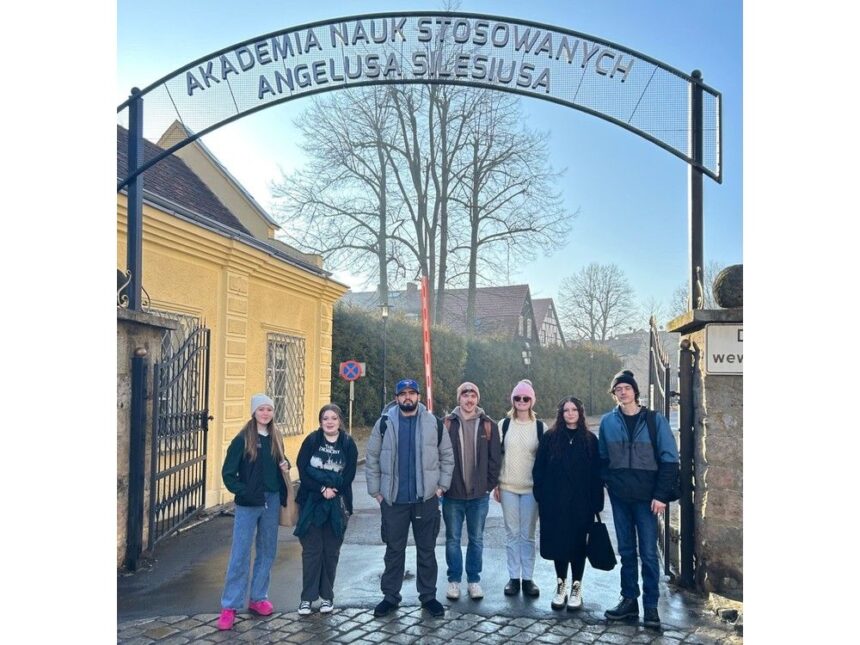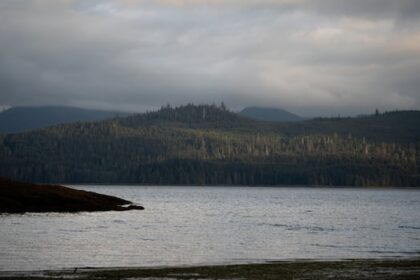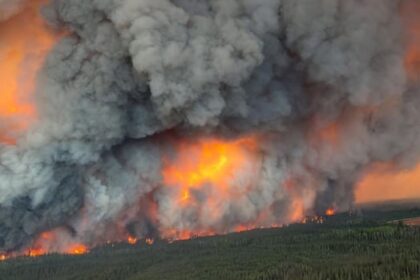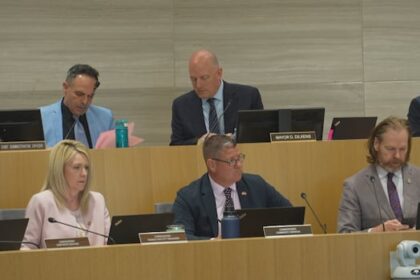New perspectivesAuthor of the article: PNI Atlantic Published Apr 02, 2025 • Last updated 5 hours ago • 3 minute readCape Breton students at the main gates of Angelus Silesius University, from left, are Cassidy Boutilier, Reilly Fitzpatrick, Youssef El Assal, Andre Leclair, Sarah Munro, Emma Whiffen-Annesty, Brandon Butler. CONTRIBUTEDIn late February I had the opportunity to travel to Europe with seven wonderful Cape Breton University students to take part in a unique and awe-inspiring “field course” on Issues in Local Government held in Walbryzch, Poland.Walbryzch (pronounced VOWb-zhuhk), is a sister city to the Cape Breton Regional Municipality, and a part of this sister-city agreement is for local universities in each city to collaborate on shared educational initiatives helping to give Canadian and Polish students opportunities to meet, work, and study together on common projects.THIS CONTENT IS RESERVED FOR SUBSCRIBERS ONLY.Subscribe now to access this story and more:Unlimited access to the website and appExclusive access to premium content, newsletters and podcastsFull access to the e-Edition app, an electronic replica of the print edition that you can share, download and comment onEnjoy insights and behind-the-scenes analysis from our award-winning journalistsSupport local journalists and the next generation of journalistsSUBSCRIBE TO UNLOCK MORE ARTICLES.Subscribe or sign in to your account to continue your reading experience.Unlimited access to the website and appExclusive access to premium content, newsletters and podcastsFull access to the e-Edition app, an electronic replica of the print edition that you can share, download and comment onEnjoy insights and behind-the-scenes analysis from our award-winning journalistsSupport local journalists and the next generation of journalistsRegister to unlock more articles.Create an account or sign in to continue your reading experience.Access additional stories every monthShare your thoughts and join the conversation in our commenting communityGet email updates from your favourite authorsSign In or Create an AccountorArticle contentRecommended from Editorial DAVID JOHNSON: Control of Senate could be key to successful U.S. presidency DAVID JOHNSON: Canada’s ‘Forgotten War’ veterans remembered DAVID JOHNSON: World war connections run deep KEY LEARNINGWhile our CBU contingent was in Walbryzch for just over a week, timed to coincide with CBU’s “Reading Week,” we were laser-focused on a variety of key learning points: the complicated history of this part of Poland, the region of Silesia, which had been a part of Germany for centuries up until the end of the Second World War;how Walbryzch was coping with the demise of its coal industry over the 1990s and the fall of the Communist regime; how the city is developing new economic roots especially tied to tourism, the incubation of new, high-technology, and green manufacturing industries;the promotion of environmentalism and the greening and cleaning of an historically “industrially-grubby” city;and the role of a local university, in Walbryzch’s case, Angelus Silesius University, as a key “anchor institution” not only in the role of being a pillar for post-secondary education but also as an economic driver for the city and its adjoining region.Article content David Johnson, left, is shown beside guide/translator Wiktor Galimsky, offering words of support and solidarity to the families of the Ukrainian Integration Centre. CONTRIBUTEDIt’s not hard to see the similarities between this region of Poland and the old industrial part of Cape Breton, and the shared paths that those in the private and public sectors in both places have travelled, and the common interests and challenges, hopes and fears, that people in both places live with.Our CBU students are currently working on a collective report on what they have learned about Walbryzch’s efforts to reinvent itself over the past 30 years and what lessons learned, and advice, they have for the CBRM mayor and council.I know that I am not alone, amongst our little group of travellers, when I say that a number of places and events and people that we saw in Walbryzch will remain with me for the rest of my life. Exploring Castle Grodno – historical preservation.UKRAINE INSIGHTOn Sunday, Feb. 23, a day before the third anniversary of the 2022 Russian invasion of Ukraine, we visited the Ukrainian Integration Centre in Walbryzch. Since this latest invasion over three million Ukrainians, mainly women and children have fled their homeland and have settled in Poland, leaving their fathers, brothers, husbands, boyfriends behind to defend their country.Article contentThousands of such refugees are now living in Walbryzch, and on that Sunday, our group was part of a memorial service to remember, and honour, the tens of thousands of Ukrainians who have died in this war and the hundreds of thousands who have been physically and mentally scarred for life. There were tears shed at this event, and some were Canadian. Solidarity flags proudly displayed in the Walbryzch Miners’ Museum.PEACE AND JUSTICEOur students also had the opportunity to learn about the Solidarity Trade Union movement of the 1980s, its heroic strikes in the summer of 1980, the rise to prominence of Lech Walesa as the popular leader of the Polish people and their desire for peace, justice, and liberal democracy.Our students heard about the Communist regime’s brutal implementation of martial law in the winter of 1981 but the continued resolve of the Polish people, aided by the support of the Roman Catholic Church as the only institution in the country free from the iron grip of the Communist Party, to demand respect and decency in public life.The Solidarity movement helped to undermine the Soviet system in Poland, and, by example, throughout Eastern Europe, and it inspired the breaching of the Berlin Wall in 1989, and the collapse of the Soviet Union by 1991. Historic times, with Poland in the forefront. Plenty of learning lessons there.Dr. David Johnson, Ph.D., teaches political science at Cape Breton University. He can be reached at david_johnson@cbu.caArticle content
DAVID JOHNSON: Cape Breton students, Poland and real-life education











